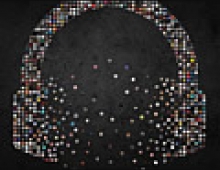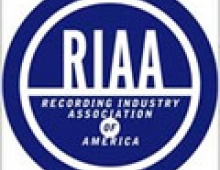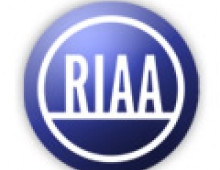
RIAA Calls Upon FCC To Endorse ISP Adoption of Network Management Policies
The Recording Industry Association of America (RIAA) today submitted comments to the Federal Communications Commission (FCC) encouraging the agency to adopt flexible rules that allow Internet service providers (ISPs) to implement anti-piracy measures that deter illegal downloading.
In its brief, the RIAA highlighted the music industry?s embrace of various digital distribution models:
"The music industry has fully embraced the Internet as a major channel for connecting with consumers to market and provide access to our copyrighted works. Sales of digital albums and digital singles continue to break new records each year, as personal computers, portable devices, and smart phones increasingly displace physical media as the primary means for consuming music. For example, RIAA estimates that in 2009 digital downloads accounted for nearly 40% of legitimate sound recording sales in the U.S. Accordingly, the industry has greatly expanded the range of options available to consumers for accessing, listening to, enjoying and experiencing music online as it continues to invest in innovative online business models," RIAA said.
The RIAA further estimates that by 2011, more than half of the industry?s revenues will be based on legitimate online consumption of music. "In sum, we expect that the Internet will become the recording industry?s primary channel for communicating with customers and for distributing content," RIAA added.
RIAA believes that the full potential of those licensed digital distribution models are undermined by a glut of illegal file-sharing. According to one study cited by RIAA in its brief, by recent estimates copyright piracy has caused more than $25 billion in direct revenue losses to core American copyright businesses, costing the United States economy more than 373,000 jobs. Within the music community specifically, the theft of sound recordings has contributed to more than a 60 percent reduction in workforce at the major record labels during the past decade.
Equally important is the profound impact of creative theft on American culture. Submitted the RIAA:
"Music is woven into the fabric of our lives. Each person has his or her own personal soundtrack through which music connects the events experienced in life. We therefore should not forget the social toll that digital theft will have. As artists rosters are pared and future artists opt for other careers, digital theft has the effect of quieting countless voices we will never have the privilege to hear?As singer-songwriter Lily Allen said, illegal file sharing "is a disaster as it?s making it harder and harder for new acts to emerge."
The RIAA also highlighted the ill effects illegal file-sharing imposes upon users? capacity to use the Internet for lawful purposes:
"Piracy, particularly piracy conducted by high-volume users, notoriously hogs bandwidth. Peer-to-peer file-sharing services ? a favorite means of unlawfully stealing copyrighted material -- represent a huge portion of the traffic on the Internet today. Based on recent estimates, peer-to-peer file-sharing applications represent over 20% of the total bytes that traverse the Internet and 17% of the bandwidth used during peak hours. Moreover, in an average month, the top 1% of subscribers account for 25% of total Internet traffic, and 40% of the upstream traffic; over 46% of top subscribers? traffic comes from file-sharing applications. So too in the mobile context, where, by recent estimates, peer-to-peer file-sharing is the "single largest factor leading to cell congestion," taking up 21% of bandwidth on the average cell and 42% in the top 5% of cells."
"Put bluntly, huge amounts of the Internet?s bandwidth are tied up in unlawful traffic. Piracy wastes scarce network resources and crowds out legitimate uses of the network. It costs more to bring broadband to additional areas because of this inflated bandwidth usage. As we, along with our partners launch music services depending on higher bandwidth, we have a particularly strong interest in ensuring an Internet in which media applications ? which, unlike file-sharing applications, have a low tolerance for network delay ? can function smoothly and without the network congestion caused by piracy-inflated traffic."
RIAA said that ISPs play an essential role in enabling the growth of legitimate music distribution channels by implementing network management practices that discourage the exchange of unlawful copyrighted works. Specifically, the RIAA argued:
"ISPs are in a unique position to limit online theft. They control the facilities over which infringement takes place and are singularly positioned to address it at the source. Without ISP participation, it is extremely difficult to develop an effective prevention approach. We thus urge the Commission to adopt rules that not only allow ISPs to address online theft, but actively encourage their efforts to do so. Crucial to this project, the Commission must ensure that its Open Internet rules do not have a chilling effect on such efforts."
"The future of the music community is dependent on a healthy and vibrant digital music marketplace," said Mitch Bainwol, Chairman and CEO, RIAA. "ISPs play an essential role in fostering that legitimate marketplace and discouraging the illegal trafficking of copyrighted works. We foresee a future where ISPs are our partners, enabling new business models and delivering new content to fans in ways unimaginable today. We hope that any final rules established by the FCC reflect this forward-thinking reality and support ISP action against unlawful activity for the benefit of fans, creators and for the rich fabric of American culture."
"The music industry has fully embraced the Internet as a major channel for connecting with consumers to market and provide access to our copyrighted works. Sales of digital albums and digital singles continue to break new records each year, as personal computers, portable devices, and smart phones increasingly displace physical media as the primary means for consuming music. For example, RIAA estimates that in 2009 digital downloads accounted for nearly 40% of legitimate sound recording sales in the U.S. Accordingly, the industry has greatly expanded the range of options available to consumers for accessing, listening to, enjoying and experiencing music online as it continues to invest in innovative online business models," RIAA said.
The RIAA further estimates that by 2011, more than half of the industry?s revenues will be based on legitimate online consumption of music. "In sum, we expect that the Internet will become the recording industry?s primary channel for communicating with customers and for distributing content," RIAA added.
RIAA believes that the full potential of those licensed digital distribution models are undermined by a glut of illegal file-sharing. According to one study cited by RIAA in its brief, by recent estimates copyright piracy has caused more than $25 billion in direct revenue losses to core American copyright businesses, costing the United States economy more than 373,000 jobs. Within the music community specifically, the theft of sound recordings has contributed to more than a 60 percent reduction in workforce at the major record labels during the past decade.
Equally important is the profound impact of creative theft on American culture. Submitted the RIAA:
"Music is woven into the fabric of our lives. Each person has his or her own personal soundtrack through which music connects the events experienced in life. We therefore should not forget the social toll that digital theft will have. As artists rosters are pared and future artists opt for other careers, digital theft has the effect of quieting countless voices we will never have the privilege to hear?As singer-songwriter Lily Allen said, illegal file sharing "is a disaster as it?s making it harder and harder for new acts to emerge."
The RIAA also highlighted the ill effects illegal file-sharing imposes upon users? capacity to use the Internet for lawful purposes:
"Piracy, particularly piracy conducted by high-volume users, notoriously hogs bandwidth. Peer-to-peer file-sharing services ? a favorite means of unlawfully stealing copyrighted material -- represent a huge portion of the traffic on the Internet today. Based on recent estimates, peer-to-peer file-sharing applications represent over 20% of the total bytes that traverse the Internet and 17% of the bandwidth used during peak hours. Moreover, in an average month, the top 1% of subscribers account for 25% of total Internet traffic, and 40% of the upstream traffic; over 46% of top subscribers? traffic comes from file-sharing applications. So too in the mobile context, where, by recent estimates, peer-to-peer file-sharing is the "single largest factor leading to cell congestion," taking up 21% of bandwidth on the average cell and 42% in the top 5% of cells."
"Put bluntly, huge amounts of the Internet?s bandwidth are tied up in unlawful traffic. Piracy wastes scarce network resources and crowds out legitimate uses of the network. It costs more to bring broadband to additional areas because of this inflated bandwidth usage. As we, along with our partners launch music services depending on higher bandwidth, we have a particularly strong interest in ensuring an Internet in which media applications ? which, unlike file-sharing applications, have a low tolerance for network delay ? can function smoothly and without the network congestion caused by piracy-inflated traffic."
RIAA said that ISPs play an essential role in enabling the growth of legitimate music distribution channels by implementing network management practices that discourage the exchange of unlawful copyrighted works. Specifically, the RIAA argued:
"ISPs are in a unique position to limit online theft. They control the facilities over which infringement takes place and are singularly positioned to address it at the source. Without ISP participation, it is extremely difficult to develop an effective prevention approach. We thus urge the Commission to adopt rules that not only allow ISPs to address online theft, but actively encourage their efforts to do so. Crucial to this project, the Commission must ensure that its Open Internet rules do not have a chilling effect on such efforts."
"The future of the music community is dependent on a healthy and vibrant digital music marketplace," said Mitch Bainwol, Chairman and CEO, RIAA. "ISPs play an essential role in fostering that legitimate marketplace and discouraging the illegal trafficking of copyrighted works. We foresee a future where ISPs are our partners, enabling new business models and delivering new content to fans in ways unimaginable today. We hope that any final rules established by the FCC reflect this forward-thinking reality and support ISP action against unlawful activity for the benefit of fans, creators and for the rich fabric of American culture."




















